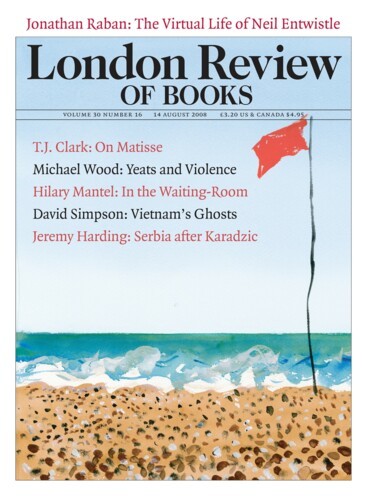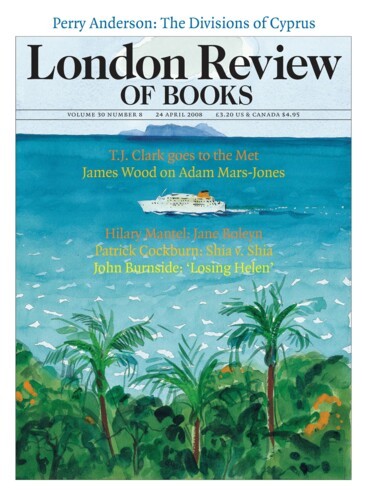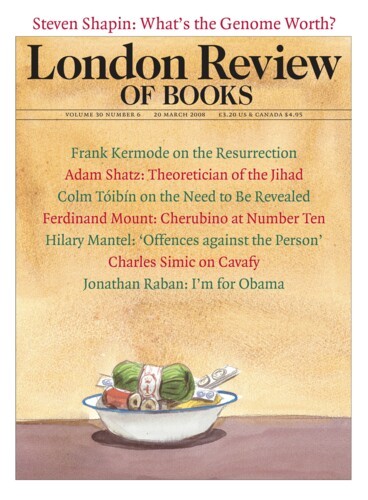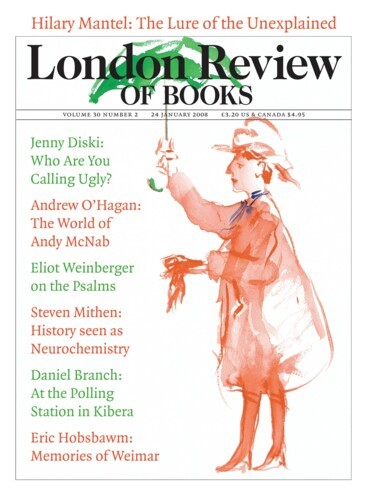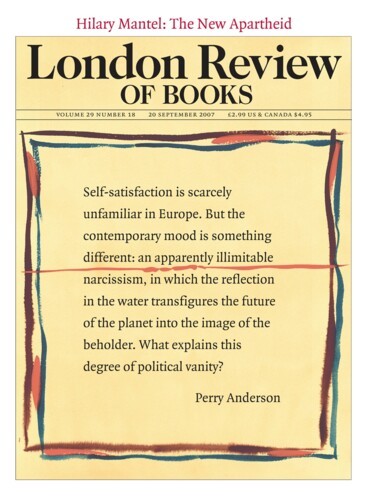Diary: In the Waiting Room
Hilary Mantel, 14 August 2008
At 6 p.m. on a damp late June evening, I look up from my book and see my husband across the room, faint and grey with pain. What to do? It’s Sunday, and whereas until recent years you couldn’t on a British Sunday buy a pound of carrots or see a play, these days you can’t be taken ill, unless you’re prepared for a long and uncertain wait for your GP’s deputising...
